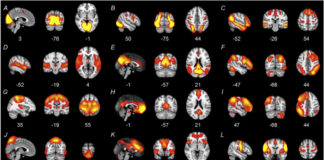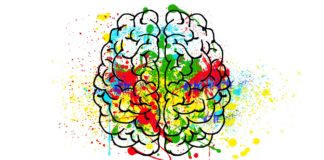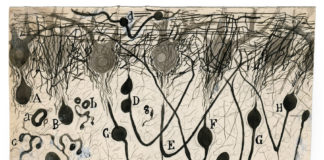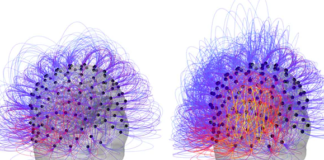Tag: neuroscience
Video: Origins of Mental Disturbance in a ‘Normal’ Family – Like...
ABSMC Psychiatry Grand Rounds presentation by Neuroscientist Peter Sterling, PhD on December 2, 2024. In this video, Peter Sterling talks of his family experiences...
Inside the Neuroscience Community: Peter Sterling Responds to Awais Aftab
Dr. Aftab objects to my "tirade against psychiatric neuroscience." What Dr. Aftab does not do is address any of my substantive conclusions.
Causality in Mental Disturbance: A Review of the Neuroscience
Psychiatry's medicalization of social and psychological suffering is not justified by the currently known biology.
A Neuroscientist Evaluates the Standard Biological Model of Depression
Current evidence does not support a biological hypothesis of depression. It is far better predicted by levels of childhood trauma, life stress, and lack of social supports.
Johann Hari: Stolen Focus – Why You Can’t Pay Attention
Johann Hari joins us to talk about his latest book Stolen Focus: Why You Can’t Pay Attention, in which he examines the reasons behind our inability to focus and seeks to understand how this crisis affects our wellbeing and society.
Allen Frances: Still Spinning the Story
Allen Frances' latest article: There are problems in the psychiatric field, but none of these problems can be blamed on psychiatry. But the spurious promotion of psychiatric "diagnoses" as real illnesses, and the routine prescribing of chemical and electrical "cures" were and are psychiatric inventions.
No Brain Connectivity Differences Between Autism, ADHD, and “Typical Development”
Neuroscience researchers find no differences in brain connectivity between children with diagnoses of autism, ADHD, and those with no diagnoses.
Why Precision Psychiatry is Not a Paradigm Shift
A letter just published in JAMA Psychiatry suggests that “precision psychiatry” is not the paradigm shift it’s purported to be by the psychiatric establishment.
Questioning the Philosophical Assumptions of Neuroscience Research
Are philosophical misunderstandings behind the failure of neuroscience to provide useful clinical research?
Experts Question the Benefits of Brain Imaging Research for OCD
Two experts—a leading neuroscientist studying OCD, and a psychiatrist specializing in OCD treatment—question whether expensive brain imaging research has added anything to the treatment of OCD.
Social Scientists Question Growing Neuro Discourse
Anthropologists analyze discourse surrounding anthropological engagement with the neurosciences in an editorial recently published in Medical Anthropology.
People Think Research is More Credible When It Includes “Extraneous” Brain...
People show greater trust in studies with neuroscience language, graphs, and especially brain images.
Antonio Damasio, Feeling, and the Evolution of Consciousness
From the Los Angeles Review of Books: In his new book The Strange Order of Things, neuroscientist Antonio Damasio highlights the role of feeling and subjectivity...
Scientists Fight Against the Myth of the Normal or Optimal Brain
A new study out of Yale University uses evolutionary biology to debunk the idea that there is a “normal” or “optimal” brain.
When Algorithms Are Running the Asylum
From Neo.life: The emerging discipline of computational psychiatry, which aims to use machine-learning algorithms to recognize patterns of mental distress and identify treatments that may be...
Evolution Doesn’t Care What You Think a Brain Region is Called
From Medium: While naming brain regions is crucial to the study of neuroscience, it may also be misleading. These names may oversimplify our understanding of...
A Glimpse Into the Brain, Drawn by the Father of Neuroscience
From The New York Times: A new exhibit at the Grey Gallery at New York University presents 80 hand-drawn renderings of the brain by Santiago...
Trauma Resiliency Model: A New Somatic Therapy for Treating Trauma
Report presents new body-based therapeutic approach for shock and complex developmental trauma.
The Hundred Trillion Stories in Your Head
In this piece for The Paris Review, Benjamin Ehrlich discusses the role of the literary arts in shaping the work and ideas of Santagio Ramón y...
Psychotherapy is THE Biological Treatment
Psychotherapy addresses the brain in the way it actually develops, matures and operates. The process for brain change involves deactivation — disuse, not utilizing the old brain map; and then creating a new one. Psychotherapy can deactivate maladaptive brain mappings and foster new and constructive pathways.
Misconceptions About Brain Science Very Common, Study Finds
Researchers investigate commonly held misconceptions about brain research among Americans.
Does Modern Neuroscience Really Help us Understand Behavior?
From Massive: According to neuroscience experts Danbee Kim and Gonçalo Lopes, the field of neuroscience focuses far too much on the anatomy of the brain and...
Olga Runciman: Moving Beyond Psychiatry
This week on the Mad in America podcast we interview Olga Runciman. Olga is an international trainer and speaker, writer, campaigner, and artist. In this interview, we discuss Olga’s professional and personal experiences of the psychiatric system and how she now helps and supports healing and recovery in others.
Implant ‘Restores Consciousness’ to Man in Vegetative State
From The Guardian: A 35-year-old man who had been in a persistent vegetative state (PVS) for 15 years has shown signs of consciousness after receiving...
I Am Not a Brain: Philosophy of Mind
From Times Higher Education: A new book by Marcus Gabriel, I Am Not a Brain: Philosophy of Mind for the 21st Century, critiques the idea prevalent...

































